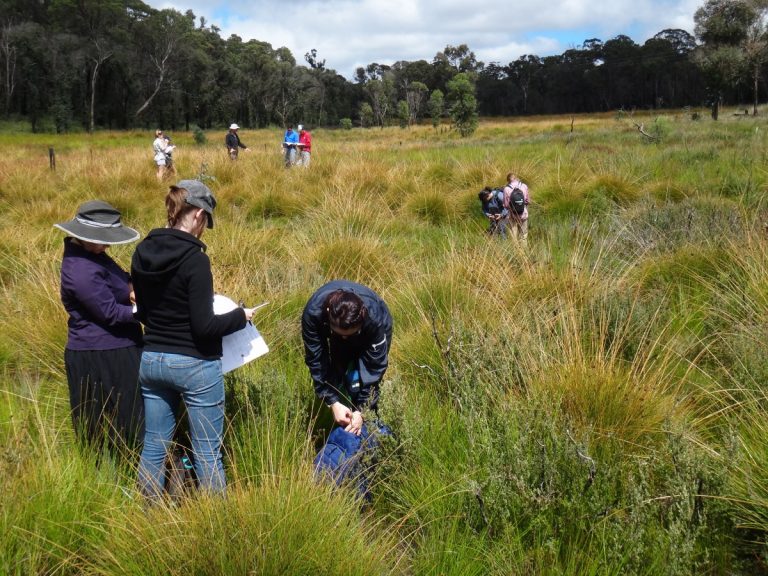
Understanding planet Earth and its thriving ecosystem has been a subject of interest for humans since the dawn of mankind. The complex relationship between people and their environment is the source of issues spanning social, political and economic landscapes across the globe, and this is something that affects every individual.
The global population is projected to grow by at least 40 percent in the next 30 years. Maintaining the resources to support such rapid growth and sustain 10 billion people is now among the most pressing issues facing the world. Natural resource management and ecological restoration has reached a critical point for scientists worldwide, many of whom are striving to research and develop solutions to combat these threatening crises.

Understanding the scientific makeup of the natural world is vital in preserving its magnificence and longevity. The study of Environmental Science is fundamental in our ability to sustainably manage Earth’s water, energy, minerals, soil, coastal and biological resources, as well as helping us understand, predict and manage natural hazards like earthquakes, floods and volcanic eruptions.
Harbouring the resources planet Earth has to offer has proven invaluable in medical studies as well as other fields, helping improve the standard of life for the whole of humanity. Further exploration of the natural resources available to us will undoubtedly lead to new medical breakthroughs.
Studying Environmental Science will open the door to a variety of careers in life after university. Government agencies, global organisations, research institutes and broadcast companies are among the potential suitors for graduates, who can utilise their degree in every region of the world. The critical and analytical skills that an Environmental Sciences degree provides are also transferable to pretty much any career path a student may wish to go down.
Passion for the preservation and development of our world is at the core of studying Environmental Sciences, which is why its application bears some of the most exciting and interesting projects being explored on the planet today.
Below are 5 APAC universities that stand at the forefront of academic research…
SCHOOL OF ENVIRONMENTAL AND RURAL SCIENCE, UNIVERSITY OF NEW ENGLAND – AUSTRALIA
The School of Environmental and Rural Science (ERS) at the University of New England (UNE) is a melting pot for environmental study and research, with geologists, remote sensing specialists, geneticists, Earth scientists, zoologists, plant scientists, soil scientists, and ecologists working side-by-side to innovate and develop novel solutions to tackle the challenges that our world faces today.

Students at ERS receive unparalleled support from academic mentors who help instil an analytical and focused mind-set to prepare students for a career after they graduate. Couple state-of-the-art laboratories and research tools with access to nearby World Heritage sites, where life thrives through wet and dry forests, grasslands, rivers and waterfalls, and students are spoilt for choice when choosing a specialised field of study. From pollution management through to threatened species management, students at UNE receive training from leading international researchers.
With its 5-star ratings from the Australian Good University Guide, and number one rank from Online Study Australia, UNE is Australia’s leading distance education provider. UNE students are located around the globe or enjoy the benefits of a modern on-campus and college experience in Armidale, New South Wales, Australia.
UNE has a particular focus on agriculture, making it a world leader in livestock genetics. An initiative started in the 1990s has led to a gene-based selection strategy for traits such as meat tenderness in cattle and resistance to parasites in sheep – resulting in more sustainable food production, healthier animals, a lower environmental footprint and a more viable rural industry.
Travelling abroad for particular areas of academic research and teaching is a fundamental part of the curriculum at UNE too, with recent expeditions including China, Myanmar, Botswana and Cambodia.
SCHOOL OF EARTH SCIENCE, UNIVERSITY OF WAIKATO – NEW ZEALAND
The School of Science at the University of Waikato, New Zealand, is uniquely placed to offer students a comprehensive learning experience in all aspects of Earth Science. Located close to both North Island coasts in the heart of the richest farming region in the country, the school also finds itself a short distance from the active Taupo Volcanic Zone and the Waikato River – the longest river in New Zealand.
A curriculum which incorporates the exploration of the local landscape, the study of Earth Sciences at Waikato provides students with an opportunity to develop a broad understand of the Earth’s functions, before increasing their depth of knowledge in areas such as coastal and marine science, engineering geology, environmental engineering science, environmental monitoring and management, geo-resource exploration, global environmental change, hydrology, oceanography, volcanology and more, using state-of-the-art technology and computing facilities.

Research projects at the University are supported by multi-million dollar investments from national and local governments, which also have significant kiwi and other community involvement.
FACULTY OF AGRICULTURE AND ENVIRONMENTAL SCIENCE, UNIVERSITY OF TASMANIA – AUSTRALIA
Students studying Agriculture and Environmental Science at the University of Tasmania will be exposed to a variety of modern methods and technologies when exploring their subject of choice, learning alongside like-minded people with a desire to affect positive change in the world.
The university offers authentic practical and field experience through use of Tasmania’s unique living laboratory and easy access to nearby World Heritage sites. The university also plays host to its own farm, marine and geological environments, while the nearby Tasmanian wilderness acts as an academic gold mine for a student studies.
Close links with the Australian agriculture industry through the Tasmanian Institute of Agriculture means students also gain access to the latest research and innovation, as well as networking opportunities with some of the sector’s most influential people – helping build connections for a successful career in Environmental Science.
SCHOOL OF EARTH AND ENVIRONMENTAL SCIENCES, SEOUL NATIONAL UNIVERSITY – SOUTH KOREA
This course at the Seoul National University (SNU) delves into the blueprints of our planet and the evolution of the universe. An emphasis will be placed on how the Earth evolved to become what it is today, in contrast to neighbouring planets that make up our solar system. Issues such as global warming, ozone layer destruction and sustainability form an integral part of the syllabus, with students encouraged to develop unique ideas and possible solutions for the problems faced by the world today.

Heongoon Kang, Head of the School of Earth and Environmental Sciences at SNU, commented: “Keeping up with the international educational and research trend of analysing and understanding the elements of the Earth in a comprehensive manner, the SEES continues to cultivate professional researchers who can conduct comprehensive research on the atmosphere, the hydrosphere, and the lithosphere and understand and solve the various environmental crises we face today. SEES graduates are working as specialists in various fields within Korea and around the world.”
SCHOOL OF LIFE SCIENCES, CHINESE UNIVERSITY OF HONG KONG – HONG KONG
Established in 2010 following the amalgamation of the Biochemistry and Biology Departments, the School of Life Sciences at the Chinese University of Hong Kong (CUHK) offers six undergraduate major programmes – Biochemistry, Biology, Cell and Molecular Biology, Environmental Science, Food and Nutritional Sciences, and Molecular Biotechnology – which are designed to meet the diverse needs of life science students.
Students at the university will be provided with training in fundamental knowledge in life sciences, before going on to specialise in one of the six programmes in their senior years. Current research areas being explored at the school include plant molecular biology and biotechnology, protein structure and function, marine biology, environmental science, and food science and technology.
Two research projects – Plant and Agricultural Biotechnology and Centre for Organelle Biogenesis and Function – have both been selected by the University Grants Committee as one of the Areas of Excellence in Hong Kong.
*Some of the institutions featured in this article are commercial partners of Study International
Liked this? Then you’ll love these…
Cultivating Futures: Global Leaders in Agriculture & Forestry
University of Waikato: An unparalleled backdrop for Environmental Science







